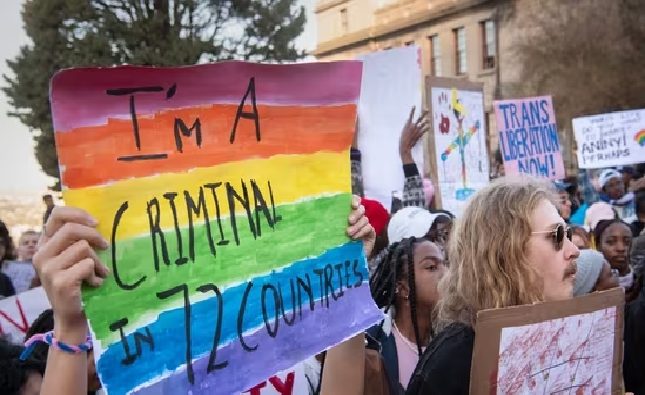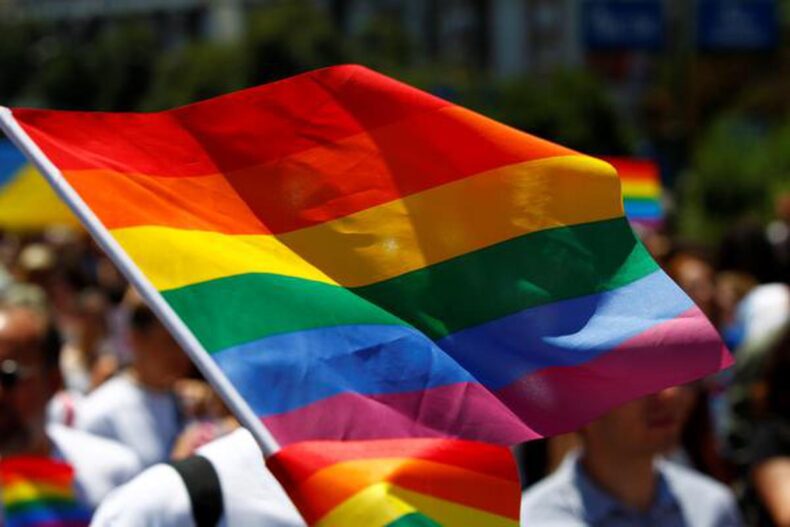A contentious directive from Iraq’s media regulator has ignited a fierce debate, as the country orders a ban on the use of the term ‘homosexuality’ across all media platforms. This sweeping decision, which mandates the use of the phrase “sexual deviance” instead, has triggered concerns over freedom of expression and the rights of the LGBTQ community.
Suppressing Language in Media
Iraq’s media landscape has been thrust into the spotlight with the recent mandate from the country’s official media regulator. In a bid to reshape discourse, all media and social media entities operating within Iraq are now required to refrain from using the term ‘homosexuality’ and instead employ the phrase “sexual deviance.” The regulator’s directive has far-reaching implications for media portrayal and discussion of LGBTQ topics.

An Unprecedented Directive
The Iraqi Communications and Media Commission (CMC) issued a document detailing the directive, which extends beyond terminology. The use of the word “gender” has also been prohibited across various media platforms, including mobile applications offered by licensed phone and internet providers. This move marks a significant step in shaping public discourse and underscores the power wielded by media regulators.
Censoring Discussion of Identity
The regulator’s decision has sparked concerns about censorship and the suppression of vital discussions about identity and human rights. By mandating the use of alternate terminology, the Iraqi media landscape now finds itself navigating uncharted territory, where open conversations about LGBTQ experiences are constrained.
Muted Voices and Unanswered Questions
As the nation grapples with this unprecedented ban, questions linger about the potential consequences for violating the directive. While a government official hinted at possible fines, uncertainty shrouds the exact penalties that individuals or entities may face. The lack of clarity adds to the unease surrounding the ban’s impact on free expression.
Iraq’s LGBTQ Landscape
The ban arrives against the backdrop of Iraq’s complex LGBTQ landscape. Although gay sex is not criminalized, the community has been targeted under vaguely interpreted morality articles in the penal code. The ban raises questions about the potential for further marginalization and discrimination faced by the LGBTQ community.
Political Shifts and Cultural Dynamics
In recent months, major Iraqi political parties have escalated their condemnation of LGBTQ rights. This intensification coincides with displays of opposition, such as the burning of rainbow flags during demonstrations by Shi’ite Muslim groups. These events underscore the evolving cultural dynamics and political shifts that intersect with discussions of LGBTQ issues.
Defying Labels
Amidst the ban, LGBTQ activists in Iraq refuse to be silenced. The community’s resilience and determination shine through as they confront this new challenge. The ban serves as a rallying point for activists to amplify their voices, advocate for their rights, and strive for a society where open dialogue and understanding prevail.
As Iraq’s media landscape grapples with the fallout of this far-reaching ban, it remains to be seen how the directive will shape public discourse, influence societal perceptions, and impact the ongoing struggle for LGBTQ rights within the nation. The ban’s reverberations transcend media platforms, acting as a poignant reminder of the enduring power of language and the unyielding spirit of those who seek to challenge barriers and foster understanding.
More of the matter
It has become increasingly ponderable as Lebanon, one of the most LGBT friendly nations in the continent of Africa, declared to not screen Barbie so as to save the public from homosexual viewpoints, as the censor board believes the movie entails. Moreover, Uganda’s harsh judgement towards same sex couples led to a law amendment and that led to a withdrawal of funds from the World Bank. This glued with Iraq’s move raises concerns for all of humanity as the rights of a wide set of people are at stake.













